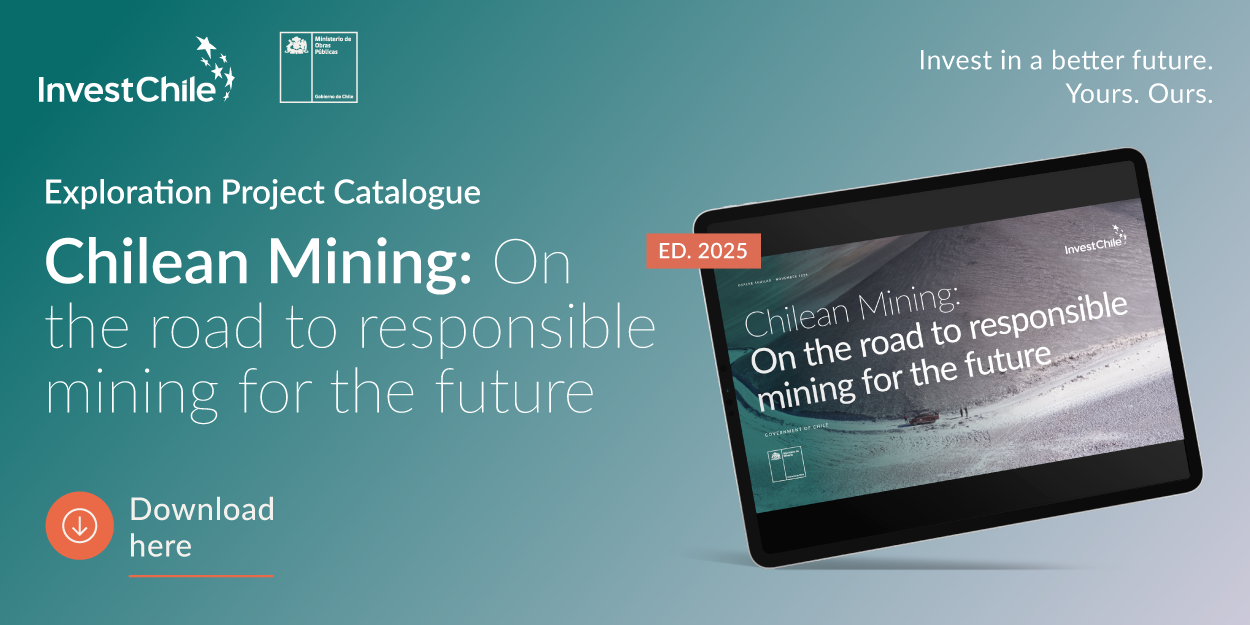Of the total number of requests for information, 53 were for 16 salt flats or saline lakes, while another 28 were for other types of deposits. Additionally, seven requests were for salt flats or areas excluded from this process.

Treasury Minister Mario Marcel, Mining Minister Aurora Williams and the executive vice president of the Chilean Economic Development Agency (CORFO), José Miguel Benavente, announced the results of the request for information (RFI) process that was carried out as part of the National Lithium Strategy.
The goal was to understand the interest of companies and consortia, both Chilean and foreign, in executing projects related to the exploration, extraction and processing of lithium contained in salt flats or other types of deposits, in order to design processes for awarding special lithium operation contracts (CEOL), based on up-to-date information.
In a press conference held at the Mining Ministry, minister Aurora Williams reported that «88 requests for information were received: eight in Arica and Parinacota, 24 in Tarapacá, 40 in Antofagasta and 16 in Atacama. A significant point was that most of the requests for information were made for areas that have the greatest geological lithium potential, according to information available from the National Geology and Mining Service (SERNAGEOMIN). Of the total number of requests, 53 were for 16 salt flats or saline lakes that have been registered by SERNAGEOMIN, while another 28 were for other deposits. Additionally, seven requests were made for salt flats or areas excluded from this process.»
Treasury Minister Mario Marcel highlighted the high participation of private parties in this process. «For all those who, at some time or another, saw the National Lithium Strategy as one that was absolutely focused on public activity, who spoke about the nationalization of lithium, who have emphasized the delay in developing this industry, what we are seeing today is a complete refutation. These results that have been presented are expressions of interest from the private sector – in a significant number of salt flats, with a significant number of participants – with the possibility of developing projects in terms that are within the horizon that we have proposed.”
The executive vice president of CORFO, José Miguel Benavente, emphasized, «a point that is tremendously important is the opportunity that this generates, through the CEOLs, to generate value and a production chain in the production of lithium-intensive goods and services, beyond the actual productive activity that can be developed in these salt flats. Our role at CORFO is to seek these production chains and generate jobs, ensuring sustainability with respect for indigenous peoples. That is the motivation of this administration – what we have called the New Industrial Policy for Productive Development –, of chaining and growth for Chile and its regions, based on what our natural resources have given us, and which we must make use of in a good way.»
According to what has been reported on the RFI platform, companies from 10 countries participated in the process, while 16% of the requests for information corresponded to consortia or joint ventures between companies.
It should be noted that in more than 80% of the projects presented, interest was indicated in the use of direct lithium extraction (DLE) technologies, a mechanism that is positioned as an innovative strategy to maximize the recovery of lithium from brine.
Next steps
«The multiple requests for information received demonstrate the great value that the exploration, extraction and processing of lithium in Chile has for the international market. The quantity and quality of the information obtained from this process will be of the utmost importance for defining the lithium deposits for which the State will begin the process of awarding CEOLs to the private sector, as well as for defining the allocation mechanisms of said contracts,» Mining Minister Aurora Williams indicated.
Furthermore, minister Marcel referred to the work that will continue in the medium term: «Compliance with all the requirements demanded by the legislation will be key to taking the next steps, particularly with regard to indigenous consultation processes where the corresponding territories are directly affected. If we meet the established deadlines, we can probably have a clear definition in April or May of next year of the CEOLs that can be awarded through this procedure.»
The Mining Ministry is currently working on a detailed analysis of the projects, including: the companies’ financial capacity; estimated annual production; the technologies to use; their experience in mining projects; and the level of progress of the projects, among other criteria.
During July, the Mining Ministry, together with the other ministries involved in the National Lithium Strategy, will be deployed throughout the territory to inform local communities of the progress of this public policy, in order to hear their ideas and concerns.
In late August, the allocation mechanisms for the deposits that have been prioritized for these purposes will be announced. In cases where it is determined that there is a susceptibility to direct impact, the respective indigenous consultation processes will begin.



%2017.11.51.png)

